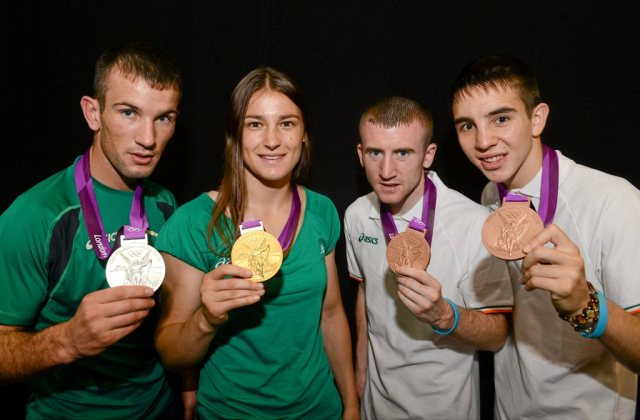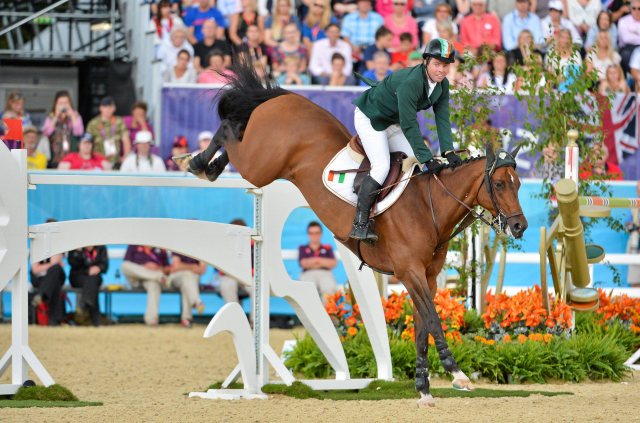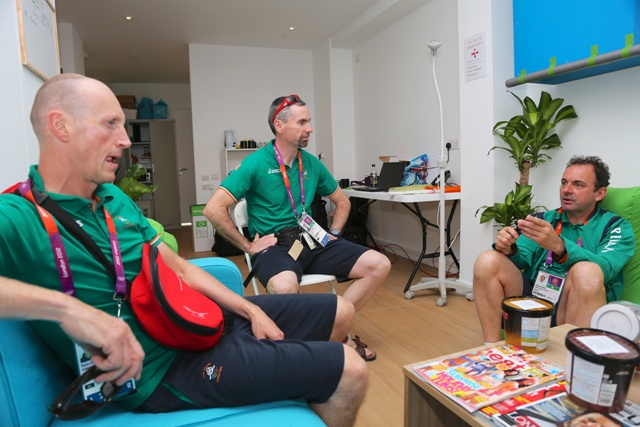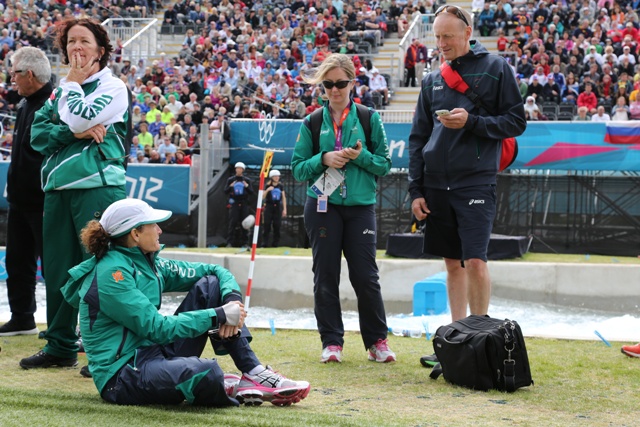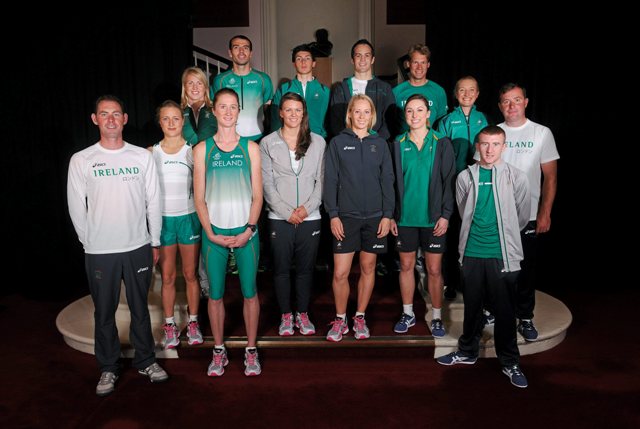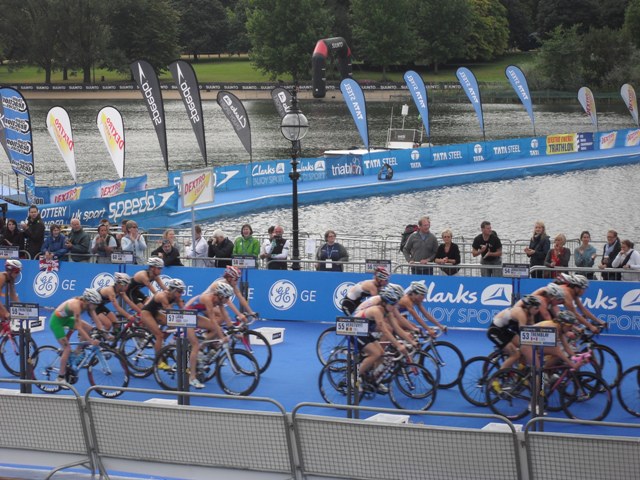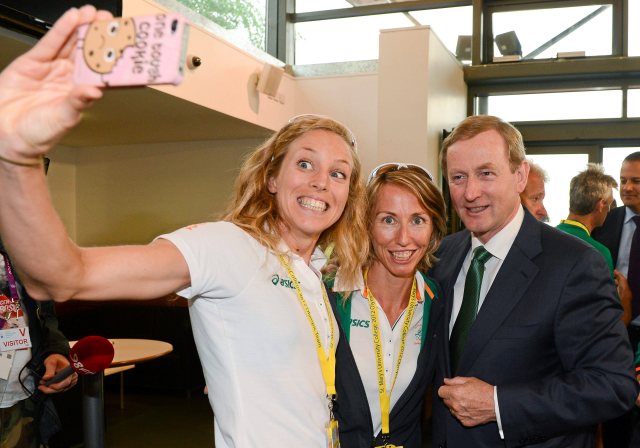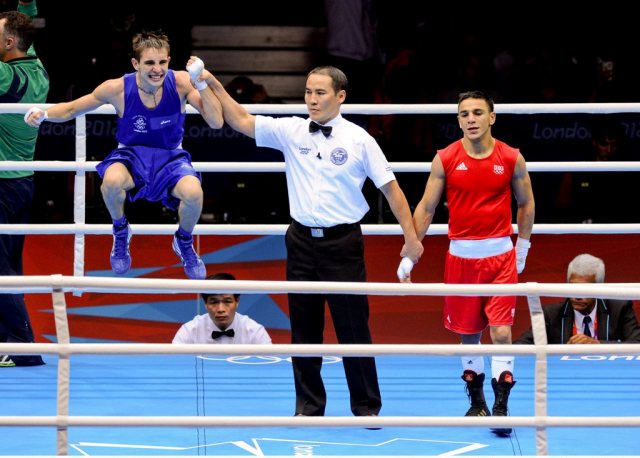The OCI Team has nine major events in the 2013-16 Olympic Cycle.
Next up the Brasov Winter 2013 and Utrecht Summer European Youth Olympics 2013, World Youth Olympics Nanjing 2014, the 2014 Sochi Winter Games, Montofan Winter 2015 and Tbilisi Summer European Youth Olympics 2015 , the new European Games Baku 2015, Lillihammer Winter Youth Olympic Games and of course Rio 2016.
London provided great inspiration for our young athletes and is another important milestone in the development of a world class system for our summer and winter youth Olympians and Olympians.
Many agencies are involved behind the scenes, all trying to assist the National Federations , their athletes and support staff in their quest to be the best they can at European , World and Olympic Level.
Each has a distinctive role to play, and through the London Technical Group the Olympic Council, the Institutes of Sport, and the Sports Councils have worked under the radar to provide the best possible support over the past 4 years and work ongoing in this Olympic cycle to ensure the systems in Ireland are improved year upon year.
In short: ISC: funding and management for high performance plans and athlete carding system, IIS: management of science, medical, coaching and athlete support programmes, and OCI: operational planning and management of the team for Olympic Competition.
Team Ireland finished 41st in the overall medal table for the London Games. 204 countries took part with only 85 countries making it on to the medals table. Almost
a third (8) of Team Ireland Olympic medals total in history (26) have come in the previous two Olympic Games.
Ireland’s five medalists; Katie Taylor (Gold), John Joe Nevin (Silver) Paddy Barnes , Michael Conlan, and Cian O’Connor were supported by some excellent performances in, for example: 4th places by Rob Heffernan (50km race walking) ; Annalise Murphy 4th Laser Radial Sailing;
Eventing Team 5th place; eventing individual 7th place for Aoife Clarke; Natayla Coyle 9th Modern Pentathlon; Andrez Jezierski 9th C1 200m canoe;10th place for Hannah Craig Canoe Slalom ; David Burrows and Peter O’Leary’s 10th place in the Star category.
In addition the 4x 400 womens relay were ranked 13th ; Sanita Puspure 13th Single scull Rowing ; 13th Martyn Irvine men’s omnium cycling; 13th Olive Loughnane 20km walk; 14th Joseph Murphy individual eventing and Matt McGovern/ Ryan Seaton 14th 49er sailing category. Canoeist Eoin Rheinisch 14th Derval O’Rourke 15th made their respective semi finals and were ranked 14th and 15th respectively.
66 athletes competed for Team Ireland in 14 sports.
43 athletes competed in their first Olympic Games, 15 in their second Games, 4 in their third and 4 in a fourth Games.
Three medals were won by athletes competing in their second Games (O’Connor, Barnes and Nevin) and two (Taylor and Conlan) in their first Olympic Games.
The OCI’s preparation for the London Olympic Games has been recognized as being world class within the high performance system.
It includes many aspects and here are a few of the elements within the London operational plan:
The Long List data capture of Athletes & Support Personnel likely to be part of the Olympic Team: sizing, photographs, performance data, and accreditation details
Olympic qualification agreements for the London Games
Team Members Agreements for Olympic Competition
Duties & Descriptions/ roles and responsibilities for Team Support Personnel
Team Seminars, conferences, media recces, training camp recces
Open and transparent communication across all sports agencies
Team building and development of an Olympic team spirit
Establishing excellent relations with LOCOG
Involvement in LOCOG Test events 2011/12
Identification and policies in place to cope with key pressure points
Team app innovation with a specialised private Olympic section pre, during and post games advice
Establishment of Pre Games training camps in London, Broxbourne and Weymouth
Assembling the Team Handbook and Olympic Games Team Website
Working with our sponsors to raise the profile of Olympic athletes through their activation programmes
Supporting the Olympic documentaries
Management of a Team and individual athlete scholarships
Priority list of performance support using exchangeable transfers to maximize accreditations
Visits before games: Chef de Mission Seminars/ Media & Medical visits/team leader, support staff, athlete commission visits
Ensuring the best possible Clothing, ceremony, village, training and performance gear
Establishing a Clothing distribution plan
Launching of ASICS Clothing
Announcement of Olympic Team (Main Event & Preliminary)
Expectation management
Pre Delegation Registration meetings with LOCOG & team registration July 2012
Flight Scheduling
External Accommodation in London, Weymouth, Broxbourne
Team Arrivals policy
Team Departure and Return policy
Communications at the Games (Phones / Radios / Computers, social media operational plan)
Internal/External transportation and general Games time transport policy
Capturing information at Test Events
Village Office, Performance Medicine support and Press set up
Medical Equipment for training bases and villages
Liaison with LOCOG polyclinic
Medical Information (documentation required)
Anti-Doping issues + TUE’s and athlete whereabouts administration
Olympic Villages accommodation set up
Creating a positive performance environment
Additional apartments London, Weymouth, Broxbourne for non accredited performance support expertise (psychology/nutrition/metoerology, personal coaches)
Managing the VIP Visits and Protocol for visits at Games time
Athlete family and friend tickets and distribution
During the Games management support on performance, medical and media issues to ensure focus on performance
Putting the athlete first


